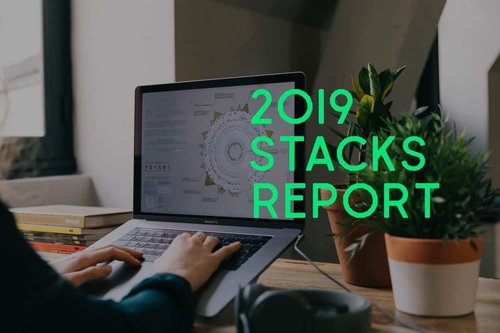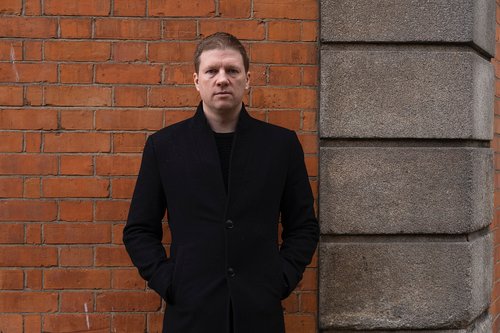Engineering Management: An Interview with Saad Rehmani
07 abr 2020
6 min


Freelance writer
Saad Rehmani is the VP of engineering at Reddit, Inc. As a news aggregation and discussion platform, Reddit saw its traffic increase dramatically when the COVID-19 pandemic took hold, with users looking for updated information and community interaction while practicing social distancing. Rehmani’s role at the organization includes overseeing the engineering team responsible for the infrastructure, platform, and core consumer experiences that exist as the framework of Reddit.
For Behind the Code, Rehmani shares how he helped the San Francisco-based engineering team transition to working from home during the outbreak, as well as his most effective management strategies. He discusses why it’s important for managers to block out time to internally synthesize information they’ve learned, how virtual coffee hangouts have created connections among team members during the crisis, and how Reddit’s engineers have worked together to efficiently combat the spread of misinformation about coronavirus.
In response to COVID-19 containment measures, many companies had to transition to remote work quite suddenly. What was the experience like for you and your team?
We were in a different situation [from most companies], as we were in the process of moving offices and already had a short work-from-home period scheduled. Because of that, our people were a bit more prepared.
We do have several employees for whom this is the first big thing that’s happened to them. This experience feels transformative. We saw a lot of people, especially younger people, who were unable to pull themselves from the news cycle, and who effectively were cocooning inside their homes. We had people who were trying to care for loved ones who they were worried about, who they were trying to support emotionally, and trying to juggle a full workday with that was not tenable.
During the first week [of working remotely], we made sure that our conversations addressed mental health and how people were coping. It was a lot less about working from home and how to be effective, and more about having managers understand people’s personal situations—if they have a kid whose care needs to be shared with a spouse, if they have other considerations they’re working through.
Now what we’re finding is that people are rebounding. They understand what their work-life balance is, and teams have a better understanding of people’s availability. And we’re getting back to work.
It sounds like you prioritized team members’ personal situations, and once they had settled down, they were able to work again with more focus.
Exactly. Usually, you don’t talk to people too deeply about what their situation is, but this is [a circumstance] where there’s a significant overlap between people’s personal and work lives. They’re adapting to handling a 100% churn in their work life, as well as a 150% churn in their personal life.
I saw a lot of people adjust to the new dynamic, and essentially working from home was the next focus. During that time, we talked about tactics and techniques for making sure people were not feeling isolated. We started doing coffee hangouts and happy hour hangouts with different groups. I participated in many of them to check in with people.
How has your management experience helped with this transition?
As a manager, one of your main jobs is to make sure that you’re magnifying the output of the team, and making sure that you’re the voice for your team to your manager and your peer group–you also need to act as a conduit back.
What this requires is two things—one is that you’re actually in touch with your team. I do skip levels—let’s say I have a director reporting to me. Instead of meeting with that director, I’ll meet with a manager and the team that reports to that director. Directors here on the engineering side do skip levels as well. We do one-on-ones.
Secondly, it’s easy to go from meeting to meeting and effectively act like a sponge and collect information. But you also need to be a knowledge worker, where you’re carving out time for yourself to think through what this information actually means. What does it mean from a strategic perspective, what kind of advice do you want to give your direct reports, and how do you go about coaching and mentoring them on a particular project?
Let’s say that a manager’s direct report is going through something challenging. It could be technical or any sort of thing, and they’re spending 10 or 15 hours on it. For you to be truly effective as a manager, you have to spend more than 15 minutes thinking about their problem in order to give them meaningful advice and essentially partner with them on the result.
So I go through “spongy periods,” where I’m collecting a lot of information and where I’m out there talking to lots of people. Then, for example, today, I have two hours blocked out where I’m going to use that information to think deeply about what it actually means. That gets reflected back in the next one-on-ones I have with my direct reports. They benefit from me thinking about their problems and being able to tie them in with my experience, as well as with the overall company strategy. And I can present it as a package of “Here’s what I think is going on.” That can be a back-and-forth to get us to the optimal solution.
Apart from your most recent challenges, what other experience has shaped your management style?
Admittedly, I didn’t raise my hand and ask to be a manager. One day, I was told to manage a group of colleagues who were working on a project that I was leading from a technical aspect. We were far too busy to deal with the fundamentals of good management skills such as handoffs, coaching, or mentoring.
I was predictably horrible at it and quickly went back to being an IC [instrumental and control] engineer. However, that experience gave me time to reflect on what had gone wrong. The next time I was offered a management position, I was much more prepared and thoughtful about my management style.
I quickly learned that curiosity is an essential skill to develop as a manager. If you worry about asking dumb questions, your knowledge will atrophy. Imagine not knowing the answer to dumb questions! The second thing I learned early on was that it’s important to recognize that you must consciously make time to be an effective manager. By investing early on in the development of your team and direct reports, you’re also investing in their long-term impact on the business.
Fast-forward many years, and I now oversee the engineering organization at Reddit. In general, my team and I spend a big chunk of time thinking about how we can ship products faster, cheaper, and better, while also allowing for more concurrent and streamlined workstreams.
As part of this, my role includes working cross-functionally with my peers who oversee product, security, revenue product engineering, and data at Reddit. I work closely with our Chief Technology Officer, Chris Slowe, who has been part of Reddit since the beginning and has been involved in the overall company strategy and vision. Together, we ensure that the overall engineering organization is supporting the business, is optimized to drive better user experiences, and can scale effectively.
What are some examples of the problems your team is working on now?
Right now we’re getting millions of requests coming into the system every minute. Reddit is a platform that has upwards of 430 million monthly active users, which is far more than the amount of engineers we have. Essentially, every engineer is handling more than a million users. This is on a fairly complex stack that’s feature-rich.
The types of problems our engineers work on are the ones that specialized groups in a larger company would deal with. At Reddit, we give these types of problems to our engineers to solve rather than saying, “These are too hard,” and having specialists solve them. And we do solve those problems on a daily and monthly basis.
What’s a recent achievement you’re really proud of?
I am proud of how the team has aligned and is working efficiently toward our goals. We’ve been able to launch some meaningful efforts and features as a result of coronavirus. The platform has been getting a lot of traffic around the coronavirus, and we wanted to make sure that people have up-to-date information.
In response to the increase in traffic, we’ve been running homepage banners directing users to helpful CDC [Centers for Disease Control and Prevention] resources and Reddit communities. We also built a search functionality that directs people to CDC information when searching for terms related to coronavirus, to make sure that people are not getting misinformation.
When we looked at implementing these features across all of our platforms—we have mobile web, desktop web, and iOS and Android—all of that work was completed pretty much over a weekend. We were able to be efficient as an organization with handoffs, and we were able to be effective while working from home. We were also able to find the right people to solve this problem and who would be passionate about making sure these efforts were launched.
This interview has been edited for space and clarity.
This article is part of Behind the Code, the media for developers, by developers. Discover more articles and videos by visiting Behind the Code!
Want to contribute? Get published!
Illustrations by Reddit, Inc / WTTJ
Follow Welcome to the Jungle on Facebook, LinkedIn, and Instagram, and subscribe to our newsletter to get our latest articles every day!

Más inspiración: Career hacking
Because being a developer is not just about coding, we want to share dedicated tips on soft skills and career paths, help you stay up-to-date with your favorite technologies, and learn more about the job market.

Computing’s Gender Divide: Why Tech Is Stuck in the 1980s
Discover why the percentage of women who held computing-based jobs has been in a steady decline since the 1980s.
14 sept 2020

5 Remote-work Lessons From the Open-source Community
The open-source movement has a few things it can share about remote working with the wider software-development community.
09 jun 2020

2019 Stacks Report
The most-mentioned technologies in the job specifications published on WTTJ's website in 2019 and the average number of applicants per technology.
21 abr 2020

Engineering Management: An Interview with Rich Archbold
Rich Archbold, the VP of Engineering at Intercom, explains how to develop a management style and how to transition to managing other managers.
17 mar 2020

Kaya Thomas, the iOS Developer Working to Achieve Inclusivity in Tech
Meet Kaya Thomas, the iOS mindfulness developer working to achieve inclusivity in tech through mentorship.
04 mar 2020

¿Estás buscando tu próxima oportunidad laboral?
Más de 200.000 candidatos han encontrado trabajo en Welcome to the Jungle
Explorar ofertas